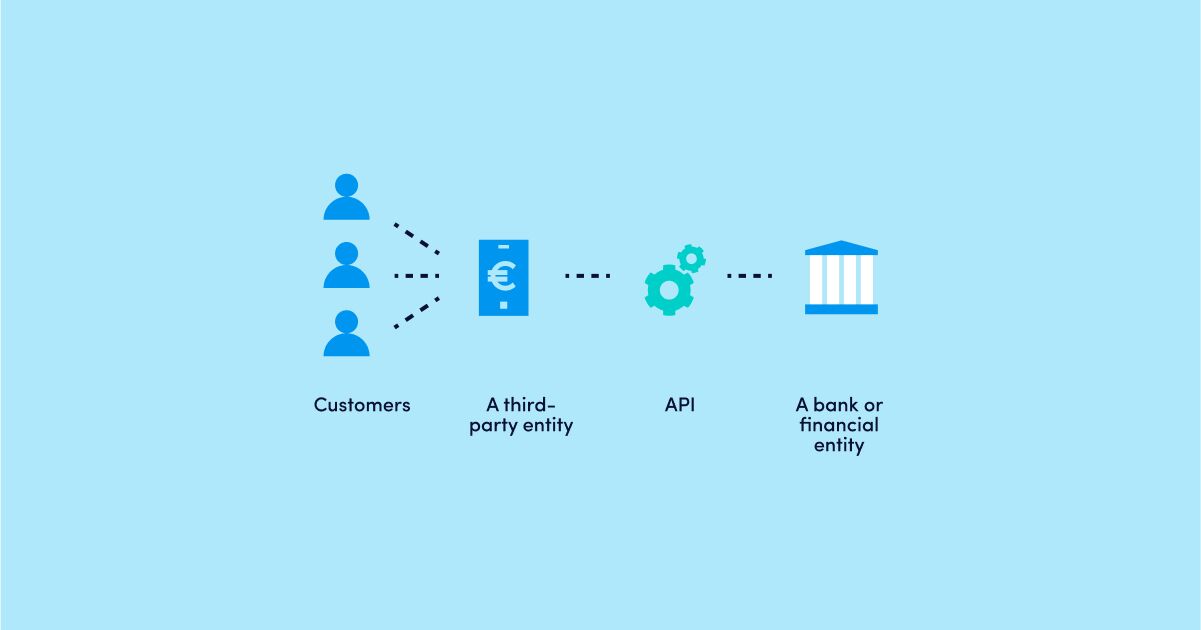Hello and welcome to our blog, in which we look at all the updates we have that relate to the latest Crypto, Payment, BigTech & Fintech regulations in 2021 and what to expect as we move through 2022. Much has happened during the last year and the next 12 months look to be just as full of activity.
So, let’s get started.
Buy Now Pay Later (BNPL)
BNPL services offered by operators like Affirm, Klarna and Afterpay have become so popular that Fintech regulation bodies were certain to more closely examine these largely unregulated products at some point. And it would seem that the UK may become the first to introduce new BNPL regulations during 2022, likely resulting in increased customer protection and legal confidence for businesses.
The United Kingdom
By employing a Consumer Credit Act exemption, UK customers have been able to use BNPL products, although a government report recently showed that this Fintech regulation was not intended to cover BNPL services. In January 2022, the UK Treasury ended the public BNPL consultation process, with a view to including them in the existing framework.
HM Treasury outlined the policy options in the consultation that are designed to attain a comparable regulatory approach for BNPL products on the following basis:
- BNPL service interventions should reflect the appropriate risk level and not restrict customer choice or the products themselves.
- Customers using BNPL services should be protected & have access to a redress of complaint process when lenders act unfairly.
- BNPL regulations should not hinder innovation or competition in the credit & payments industry.
- Merchants that offer BNPL services should not be unduly burdened and SMEs should not be disadvantaged in favour of larger companies.
The United States
The disclosure and lending practises associated with BNPL are set to be closely examined by the CFPB (the Consumer Financial Protection Bureau) – a US agency that ensures that fintech regulations and rules governing banks and other lenders are designed to encourage fair consumer treatment.
Consumers have been warned about the risks presented by BNPL by the CFPB and at the end of 2021, it launched an enquiry into the big players in the sector – like Zip, PayPal, Klarna, Afterpay and Affirm – to assess both the advantages and disadvantages of making us of BNPL services.
Responses are able to be submitted by companies up to and including the 1st of March 2022 and if the outcome shows that BNPL represents a risky customer proposition, providers will almost certainly have regulations imposed in 2023.
Australia
At time of writing, companies offering BNPL services, like Sezzle, Zip Co and Afterpay, can continue to operate, however, the central bank has decided that BNPL providers must get rid of their ‘no-surcharge’ guidelines. The result of this is that vendors are able to pass on a customer surcharge for those using these payment vehicles, should they want to offset the charges they have to pay back to BNPL firms.
On the 8th December 2021, a speech was given by Josh Frydenburg (Treasurer of Australia) that proposed radical changes to the payments system currently operating there. This included new BNPL product rules, which may involve legislative changes at some point during 2022.
The European Union
Rules governing consumer credit are being strengthened across the EU with a view to providing customers with additional safeguards. The European Commission (EC) published a proposal in June of 2021 to include BNPL services in existing consumer credit and fintech regulations.
As part of this proposal, BNPL providers will need to offer consumers additional info and refrain from soliciting them when permission has not been granted. That said, it does not go quite as far as imposing more meaningful restrictions on the sector and regulations for consumer credit are imposed at member-state level, with large variances between them. Therefore, it’s likely that the EC will look for great harmony within BNPL rules going forwards from all the nations it contains.
Real-Time Payments (RTP)
The definition of an RTP is one that’s started and completed almost instantly. This occurs over a ‘payment rail’, which describes the infrastructure over which real-time payments are facilitated. In an ideal world, RPT networks would be accessible 24 hours a day, 7 days a week, 365 days a year, meaning they’re constantly online for transfer processing, irrespective of holidays and weekends.
The clearest example of RTPs in the US is the network operated by The Clearing House. Also, the Federal Reserve’s eagerly awaited real-time offering – FedNow (possibly launching in 2023)- will be deemed to be part of a real-time network.
How RTPs Compare to Faster Payments
When trying to understand RTPs, it’s important not to mix the term up with ‘Faster Payments’. Of course, there are some similarities, however, there are some distinct differences between the two. Faster Payment vehicles like Same Day ACH from Nacha are quicker than conventional payment rails, although this doesn’t mean payments happen instantly.
Other options, like push payment services from the likes of Visa and Mastercard are able to message transactions in mere minutes or even seconds. Although, as a result of not settling the transaction more quickly, they’re categorised as Faster Payments rather than real-time ones. All payments deemed to be ‘Real Time’ can also be described as Faster Payments, but not every Faster Payment is carried out in real time.
BigTech Regulation
While the giants of BigTech are far from being novices to the world of debates on regulation, 2022 could be the year in which the likes of Amazon, Google, Apple and Facebook are subject to government legislation on a global basis – legislation that may impact central elements of their business models.
Having examined the ways in which these platforms operate for a long time, both policymakers and regulation bodies remain sufficiently confident in creating new rules that will eradicate anti-competitive practises.
Over the preceding 20 years, digital companies have become a central part of everyone’s existence, so it’s difficult to envisage an internet without these huge organisations. It’s clear that this transformation offers a number of benefits, the monopoly enjoyed by Facebook, Google et al means they have an almost insurmountable advantage over their competitors, allowing them to have undue influence on major aspects of society, economics, democracy and our fundamental rights.
Without being elected to do so, they’re often able to have almost complete control over available consumer choice and future technological innovations. They have, in a very real sense, become de facto gatekeepers, placing themselves in between internet users and businesses.
These new regulations are hoped to provide a boost to competition, growth and innovation, also aiding startups and smaller businesses to compete with the big boys.
The European Union
With a view to rectifying this imbalance, the European Union is currently attempting to reimagine the existing digital services rules to introduce two pieces of legislation; the Digital Services Act (DSA) and the Digital Markets Act (DMA). This is meant to implement a unified set of fintech regulations across the EU.
This move is to guarantee a level playing field for all digital enterprises, irrespective of the size of their companies. These guidelines will set out clear guidelines that BigTech platforms must adhere to, with distinctly illustrated good and bad behaviour with regards to imposing unreasonable conditions on consumers and businesses alike.
The United Kingdom
The United Kingdom’s Digital Markets Unit (DMU) will be officially launched in 2022, with a BigTech code of conduct being introduced. This unit will provide oversight of the implementation of the new regulations for the biggest digital companies, supporting innovation and competition, while also safeguarding businesses and consumers from any unfair practises.
The United States
The Biden government in the United States could also introduce new BigTech regulations, restricting what certain companies are able to do. It’s not certain that Congress will pass it, but there could be sufficient agreement across the aisle of a minimum agreement being made.
CBDC
Governments and regulators are now focusing much more on cryptos, attempting to usher in new legislation that will allow matters to be controlled more tightly. However, both regulators and governments are aware of the many digital currency benefits and are continuing to introduce CBDC projects around the globe.
There’s much activity currently happening around the world when it comes to CBDC, with a large number of countries researching, testing and/or launching their own CBDC framework. In truth, there are 87 countries in the process of exploring CBDC, a number that equates to 90% of global GDP. Please read the full article about CBDC projects here.
Crypto Regulation
Regulators around the world now have the task of laying down a legal framework that’s up-to-date, prudent and accommodating. As described in the 2022 edition of the crypto Regulation summary by Nasdaq, many regulators have already begun work on creating legal frameworks to oversee and control the activities of crypto companies.
Last July (in 2021), the FATF (Financial Action Task Force) – the global body that tackles money laundering – finished their 2nd year-long review into the introduction of new standards governing both virtual assets and those providing them (VASPs).
Later in October last year, the FSB (Financial Stability Board) released oversight and regulation of arrangements for a ‘Global Stablecoin’: Progress Report On the Implementation of the FSB High-Level Recommendations.
In addition to this, regulators and institutions in EC and ESMA (European Securities & Markets Authority) introduced measures in 2021. In June, policymakers in the EU suggested that firms that transfer cryptocurrencies should be compelled to gather details of sender/recipient in order to assist in government attempts to eradicate dirty money.
In July 2021, EU representatives were in negotiations surrounding the governing of MiCA (Markets in Crypto Assets) markets. The rules apply to any crypto that can’t be characterised as a ‘financial instrument’. This includes payment & utility tokens, with the primary focus being placed on ‘Stablecoins’.
In addition to this, regulators for each nation provided guidance on the introduction of a framework to legally control cryptocurrencies in: the UK, Nigeria, the UAE, Colombia, El Salvador, Chile, Brasilia, Japan, Singapore, India, Hong-Kong, China, Australia, Sweden, Switzerland, Spain, Netherlands, Luxembourg, Italy, Ireland, Germany, France, Belgium, the US, Mexico, Canada and Bermuda.
Open Banking
Europe and the recently separated UK have introduced reforms that are designed to increase the size of the existing framework for open banking. Also, Australia intends to launch an ambitious package of legislation to radically change its current payment system. In the USA, the CFPB announced in 2021 that it might also introduce measures to promote data sharing.
At the same in Europe – a pioneer of open banking fintech regulation – is set to move closer to the introduction of new governance for open finance. The European Commission’s digital finance strategy aims to have a proposal created by the middle of 2022, with the framework being introduced by 2024. Also, the FCA (Financial Conduct Authority) in the UK released the outcome of the recent open consultation on the subject in March of 2021.
Fintech Regulation
Now written into law is the Financial Services Act 2021, which seeks to address problems in the UK financial services sector caused by Brexit. It also introduces comprehensive reforms that impact a number of industries and legal frameworks (to include money laundering, insider dealing and access to the UK market by overseas entities).
Firms offering financial services must examine the Act and its contents to evaluate the kind of impact it could have on their current/future operations. The FCA and the PRA (Prudential Regulatory Authority) released their final supervisory statements and policy on the 29th March 2021, which contained suggestions on the improvement of operational resilience.
The amendments contained within will affect a range of different financial bodies to include building societies, banks, insurers, investment firms, RIEs (Recognised Investment Exchanges), certification regime firms, enhanced-scope senior managers, as well as companies registered or authorised by the 2011 Electronic Money Regulations or the 2017 Payment Services Regulations.
By the time the 31st of March 2022 comes around, businesses need to have a clear idea of their IBSs (Important Business Services) and maximum disruption tolerances, as well as needing to test and map out the necessary complexities. Business owners need also to have highlighted any operational resilience vulnerabilities. Further to this, between 31st of March 2022-31st of March 2025, companies need to have carried out testing and mapping in order that they’re able to stay inside the parameters set for each IBS tolerance.
The FinCEN (Financial Crimes Enforcement Network) has also begun a consultation in order to find methods to streamline and modernise the CFT/AML regulation setup. After the review has been completed, FinCEN will then deliver its findings to Congress in the US and ask that the required changes are made (comments can be made up until 14th of Feb 2022). FinCEN will also have the power to highlight outdated rules that fail to fall in line with US pledges to adhere to CFT/AML standards or encourage a CFT/AML risk-based system for compliance for all financial bodies. FinCEN is passionate about promoting all regulated and non-regulated entities to provide written feedback – something that will aid FinCEN in reporting back to Congress.
About Advapay
Advapay is a technology company providing the Digital Core Banking platform to empower fintech clients or digital banks to start their businesses and accelerate digital transformation. The platform delivers all essential functionalities, a front-to-back system and a set of tools to customise and bring new integrations. With Advapay, potential and existing customers can connect either to the cloud-based SaaS or on-premise software. Besides the technical infrastructure, the company provides business advisory and fintech licensing services. Interested to learn more, please drop us a message








